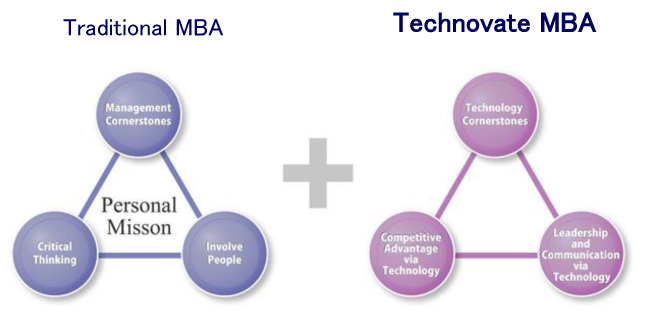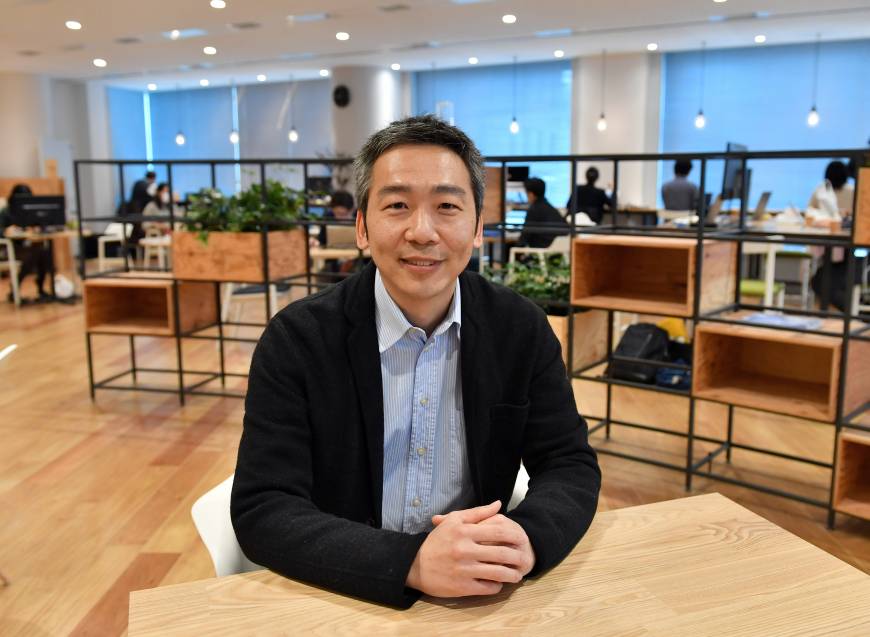For as long as business education has existed, it has lagged behind business trends. A typical business school today is barely indistinguishable from its predecessors going back almost a century, teaching traditional lessons on how to manage three core company resources — people, products and money.
The Graduate School of Management, GLOBIS University, is one institution that aims to buck that trend. Long recognized as one of Japan's top business schools, GLOBIS has recently shifted its focus to develop leaders who can combine essential management skills with technological competency through its "Technovate" courses, offered both online and on-campus in Tokyo.
Skills for the Technovate Era
While there is no shortage of business and technology courses out there, few schools have managed to fully integrate these disciplines in one program. As a standalone business school focused solely on management education, GLOBIS has been able to move quickly into this space. Leveraging its network in industry, as well as venture capital, the Tokyo-based school is rapidly revamping its MBA content in order to prepare its graduates to face a digitally driven landscape.
The Technovate concept has three pillars — technology cornerstones, competitive advantage via technology, and leadership and communication via technology. Through this combination, students are able to not only gain sufficient technological knowledge, but also understand how to effectively apply this knowledge in the context of management.

For example, in the course "Moonshot Transformation," students learn how to think beyond incremental growth, leveraging technology to lead exponential, game-changing transformation, as seen at the likes of Google and Amazon.
By hiring industry professionals rather than relying on full-time lecturers, GLOBIS believes it has found a way to ensure its content is relevant. The "Leading Big Data Strategy" course, for instance, is taught in live online classes by Meri Rosich, chief data officer and head of data science at Visa in Singapore.
Kenya Yoshino, another faculty member, said the key is to gain sufficient technological competency while maintaining the broad perspective needed by leaders.
"Business leaders must really understand technology," Yoshino explained. "Technology is already changing the way companies do business. For example, logistics companies use AI to route packages to their destinations in the shortest time possible. Leaders don't need to understand all the technical details, but they do need to learn how to harness technology to make better strategic decisions."
This expectation is not limited to leaders working in tech-related industries. Nowadays, no business is immune to the broad reach of technology — those who cannot disrupt, should expect to be disrupted.
Purpose-based approach
As important as it is to understand and leverage technology, these are skills that will need continuous updating as technology evolves. To cope with this constant change, GLOBIS MBA students also focus on developing a strong core of values and lifelong goals that will guide them through uncertain times.
GLOBIS University calls such commitments kokorozashi, roughly translating to "personal mission."
"Having kokorozashi is essential to having success in anything and every student is constantly given a chance to think about this," said Yoshino, who teaches courses on this topic.
"Leaders need strong motivation in the core of their heart to keep going with their belief, such as commitment to make social contributions. Such leaders will eventually attract the understanding and support of others.
"It is very rare to find a business school that focuses heavily on nurturing students to have personal missions that can range from using technology to make people's lives more convenient, to helping customers be ecologically friendly, to eradicating child illiteracy," Yoshino said.
"Kokorozashi should be truly worthy undertakings, inspiring many people, and those pursuing them need to be committed from the very beginning."

If this combination of Technovate and kokorozashi seems unusual, that is part of the plan. Since its founding as a start-up venture in 1992, GLOBIS has sought to develop leaders who are not afraid to innovate and go against the mainstream. As an institution, its innovative approach has already led it to become Japan's No.1 MBA school*. This adaptable and innovative mindset seems sure to remain important for many years to come, for both the university and its students.
For more information, see https://www.globis.ac.jp.
*GLOBIS University is Japan's No. 1 business school in terms of enrollment (2017 MEXT data)


 Click to enlarge
Click to enlarge
